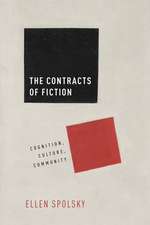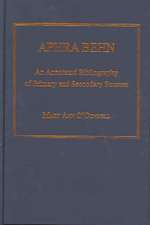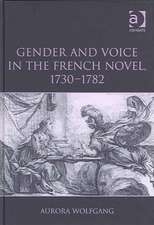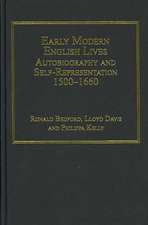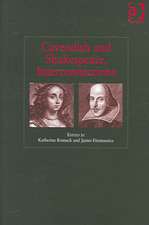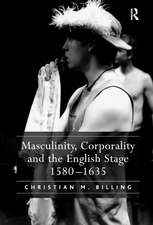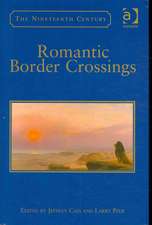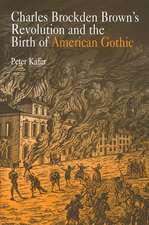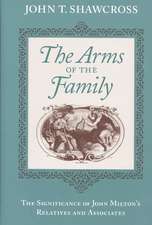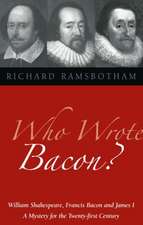The Work of Fiction: Cognition, Culture, and Complexity
Autor Ellen Spolsky Editat de Alan Richardsonen Limba Engleză Hardback – 22 iun 2004
Preț: 737.60 lei
Preț vechi: 990.47 lei
-26% Nou
Puncte Express: 1106
Preț estimativ în valută:
141.13€ • 147.37$ • 116.55£
141.13€ • 147.37$ • 116.55£
Carte tipărită la comandă
Livrare economică 15-29 aprilie
Preluare comenzi: 021 569.72.76
Specificații
ISBN-13: 9780754638490
ISBN-10: 0754638499
Pagini: 208
Dimensiuni: 153 x 219 x 21 mm
Greutate: 0.52 kg
Ediția:New.
Editura: Taylor & Francis
Colecția Routledge
Locul publicării:Oxford, United Kingdom
ISBN-10: 0754638499
Pagini: 208
Dimensiuni: 153 x 219 x 21 mm
Greutate: 0.52 kg
Ediția:New.
Editura: Taylor & Francis
Colecția Routledge
Locul publicării:Oxford, United Kingdom
Cuprins
Contents: Preface, Ellen Spolsky; Studies in literature and cognition: a field map (introduction), Alan Richardson; Stories and morals: emotion, cognitive exempla, and the Arabic Aristotelians, Patrick Colm Hogan; Women's work is chastity: Lucretia, Cymbeline, and cognitive impenetrability, Ellen Spolsky; Embodied literature: a cognitive-poststructuralist approach to genre, F. Elizabeth Hart; 'Fair is foul': Macbeth and binary logic, Mary Thomas Crane; Richardson's Clarissa and a theory of mind, Lisa Zunshine; God novels, Blakey Vermeule; Matter into imagination: the cognitive realism of Gilbert Sorrentino's Imaginative Qualities of Actual Things, Joseph Tabbi; Index.
Notă biografică
Alan Richardson is Professor of English at Boston College, USA and author of British Romanticism and the Science of the Mind. Ellen Spolsky is Professor of English at Bar-Ilan University and author of Satisfying Skepticism: Embodied Knowledge in the Early Modern World.
Descriere
The essays gathered here demonstrate and justify the excitement and promise of cognitive historicism, providing a lively introduction to this new and quickly growing area of literary studies. Written by eight leading critics whose work has done much to establish the new field, they display the significant results of a largely unprecedented combination of cultural and cognitive analysis. The authors explore both narrative and dramatic genres, uncovering the tensions among presumably universal cognitive processes, and the local contexts within which complex literary texts are produced. Following an introductory chapter mapping and evaluating the field of literary and cognitive studies, innovative essays on Shakespeare (Othello, Macbeth, Cymbeline, The Rape of Lucrece), on Samuel Richardson's Clarissa, and on recent works by Ian McEwan and Gilbert Sorrentino suggest the limitations of new historicist and post-structuralist approaches to literary and cultural studies while affirming the value of supplementing rather than supplanting them with insights and methods drawn from cognitive and evolutionary theory.

